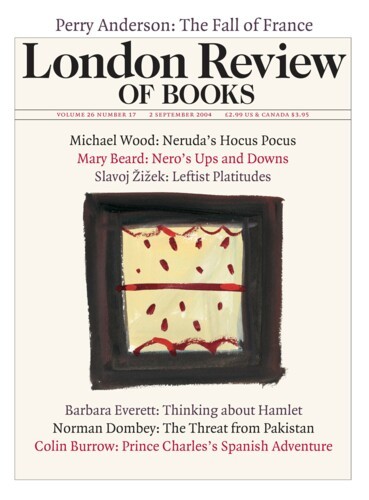I have a dream I wake from, now and then,
mostly in summer, the swallows etching my walls
with shadow, eider drowsing on the firth,
the gold light in the street trees
thick with gnats:
surprised, as I slip from my bed, to see
my neighbours’ cars, their bedroom windows
curtained, someone
moving on the street – a paper boy,
the milkman on his rounds –
when, only a moment before, I’d walked through town
on just such a morning as this, the swallows
hatching the walls in my head, the street trees
clouded with sunlight and gnats, but
nothing else:
no paper boy, no curtains drawn on lives
that I had always thought
too much like theatre;
no one moving in the world
but me, so I could pass through any door
and wander easily from room to room,
unhindered and unobtrusive, nobody home
to be offended when I opened drawers
and cupboards for the drama of a world
left unpossessed, the objects in themselves,
that no one else had ever touched or seen,
props for a play that no one was there to perform,
their reason for being unknown, till the angel descended
to set things in motion, with one final link in the puzzle:
a bread knife, a needle, a hairbrush, an unwound clock,
a fairytale apple, dusted with shadows and venom.
Send Letters To:
The Editor
London Review of Books,
28 Little Russell Street
London, WC1A 2HN
letters@lrb.co.uk
Please include name, address, and a telephone number.

